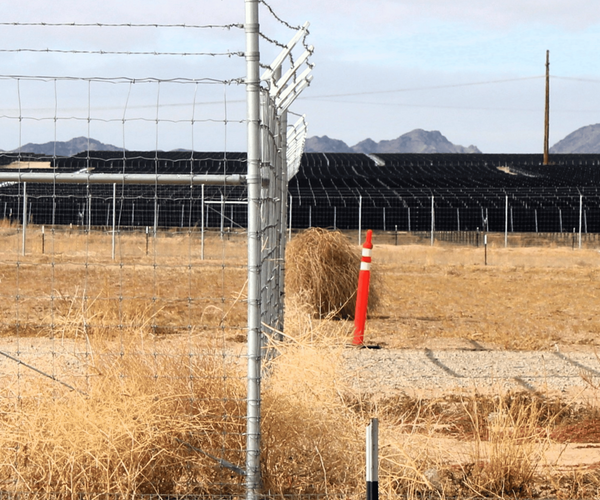Examining injustices in US solar and wind energy supply chains.
Research News
Renewable power will play a significant role in advancing clean energy goals in the United States — but with its development has come unexpected social, economic, and environmental harms to the communities involved. To help steer renewable energy transitions onto more just and equitable paths, Boston University’s Institute for Global Sustainability (IGS) is visiting multiple sites across the US representing different stages of the renewable energy supply chain.
Leading this effort are highly cited energy justice scholar Benjamin Sovacool, Director of IGS, and Xander Dunlap, an IGS Research Fellow with expertise in the lifecycles of solar project development. The project is funded by the Sloan Foundation.
Research Goals & Approach
At the center of this research initiative are in-depth site visits to explore community vulnerabilities to renewable energy’s impacts, ranging from extraction and production to generation and waste processes. These sites include the Genesis Solar Energy Project in the California desert, the Rio Tinto Kennecott mine in Utah, manufacturing facilities operated by First Solar in Ohio, and varied electronic waste operations that span a penitentiary in Florida, a formal facility in Arizona, and scrapyards in California. The information collected is explored through the lens of theories and approaches encompassing green extractivism, dispossession, Indigenous energy justice, and political ecology.
Published Research & Policy Recommendations
Journal Articles
 Sex for Solar? Examining Patterns of Public and Private Sector Corruption within the Booming California Solar Energy Market (5/1/2025) - Energy Strategy Reviews
Sex for Solar? Examining Patterns of Public and Private Sector Corruption within the Booming California Solar Energy Market (5/1/2025) - Energy Strategy Reviews Mining as Environmentalism: Green/Grey Extractivism and the Production of Extractive Subjectivities Around the Rio Tinto Kennecott Mine in the United States (3/11/2025) - Globalizations
Mining as Environmentalism: Green/Grey Extractivism and the Production of Extractive Subjectivities Around the Rio Tinto Kennecott Mine in the United States (3/11/2025) - Globalizations “It’s Kind of Just Another Factory:” A Political Ecology of Solar Panel Manufacturing in Perrysburg, Ohio (1/24/2025) - Journal of Political Ecology
“It’s Kind of Just Another Factory:” A Political Ecology of Solar Panel Manufacturing in Perrysburg, Ohio (1/24/2025) - Journal of Political Ecology When Decarbonization Reinforces Colonization: Complex Energy Injustice and Solar Energy Development in the California Desert (1/3/2025) - Annals of the American Association of Geographers
When Decarbonization Reinforces Colonization: Complex Energy Injustice and Solar Energy Development in the California Desert (1/3/2025) - Annals of the American Association of Geographers “Our Town is Dying:“Exploring Utility-Scale and Rooftop Solar Energy Injustices in Southeastern California (11/1/2024) - Geoforum
“Our Town is Dying:“Exploring Utility-Scale and Rooftop Solar Energy Injustices in Southeastern California (11/1/2024) - Geoforum ‘A Dead Sea of Solar Panels:’ Solar Enclosure, Extractivism and the Progressive Degradation of the California Desert (9/10/2024) - The Journal of Peasant Studies
‘A Dead Sea of Solar Panels:’ Solar Enclosure, Extractivism and the Progressive Degradation of the California Desert (9/10/2024) - The Journal of Peasant StudiesIn the Media
Project Leaders
-

Alexander Dunlap
Research Scientist, IGS
-

Benjamin Sovacool
Director, IGS;
Professor, Earth & Environment, College of Arts & Sciences




